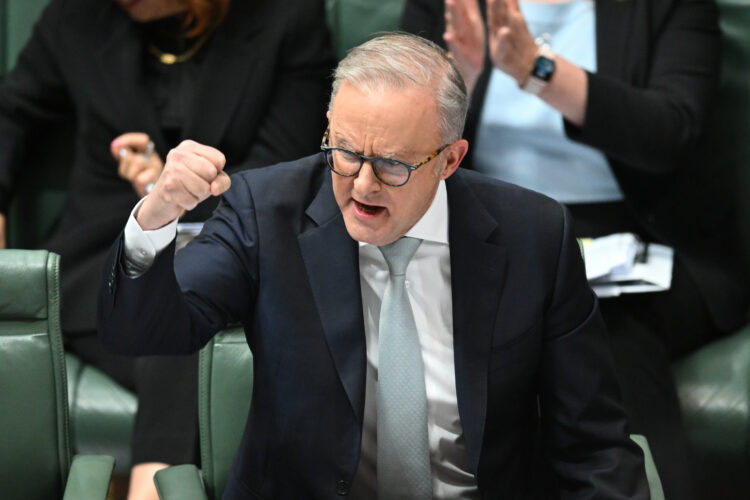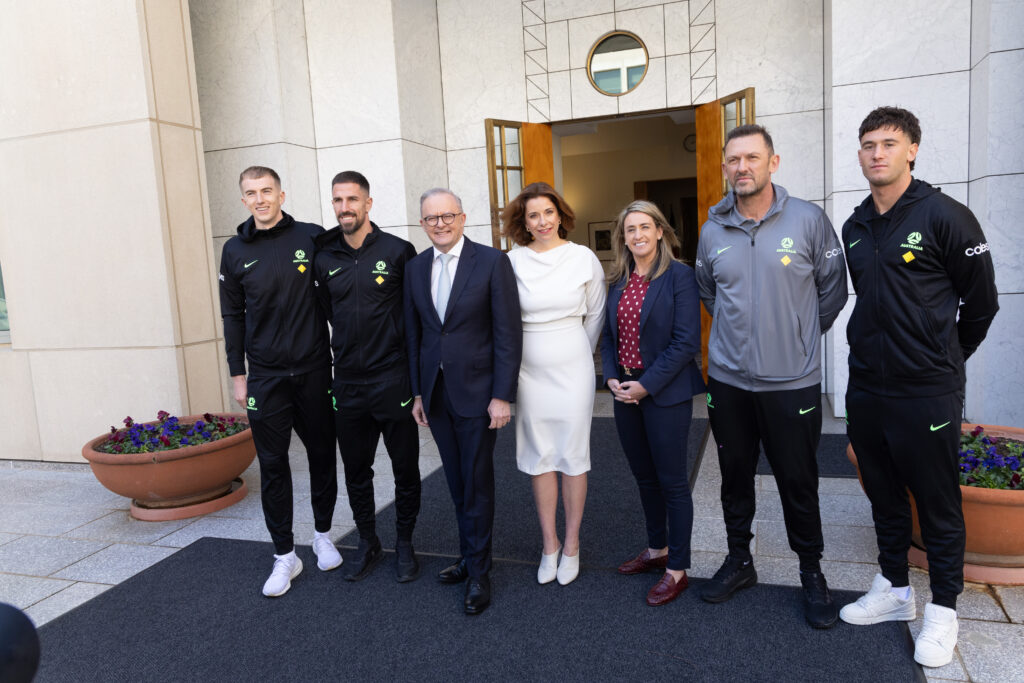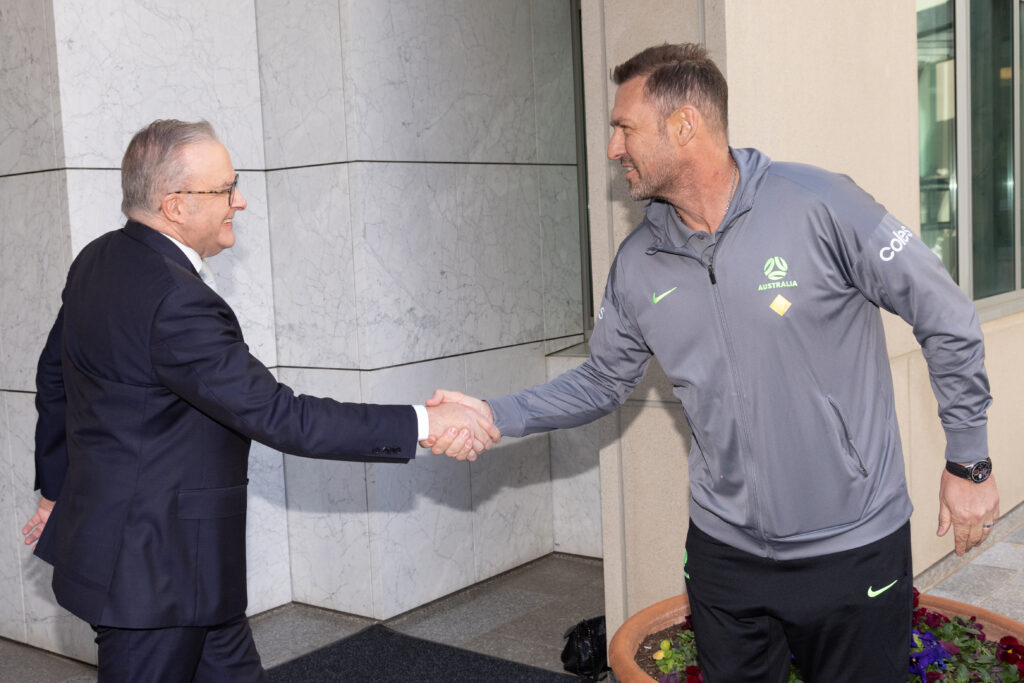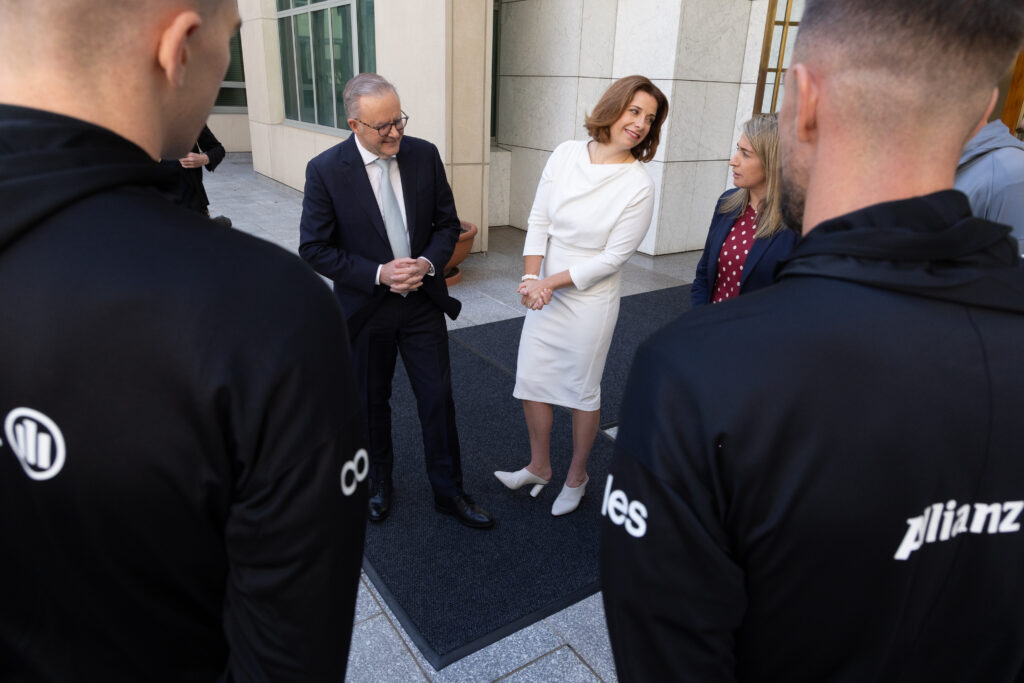Question time has begun …
Last one for this sitting fortnight …
Thu 4 Sep
This blog is now closed.

Last one for this sitting fortnight …
For so long, the major parties’ immigration policies have been a race to the bottom.
It’s easy to forget that there are still people in our Parliament willing to call out the utter madness of every aspect of this national shame … from moral to legal, financial to transparency.
Senator David Shoebridge, Greens Spokesperson for Immigration, says:
There are no depths Labor won’t explore to outflank the Coalition on the right on immigration. The cornerstone of our entire legal system, natural justice, has just been smashed by the Albanese Government.
Mandatory detention, offshore detention, preventing people who sought asylum by sea from resettling, a Trump-style travel ban and now laws that can deny natural justice, this is Labor’s legacy. It’s a legacy that deliberately undermines multiculturalism and fairness.
When Labor makes laws that say some people who were not born here are denied basic legal rights, that feeds the far-right extremism we saw at anti-immigration rallies over the last weekend.
Australia should be treating our neighbours with respect, not bribing them to become a 21st century penal colony. The Pacific can see how Australia bullies and bribes its neighbours.
Failing to treat our neighbours as friends and equals comes at a cost, and is a long-term threat
to Australia’s political and moral leadership in the Pacific.
Federal Transport Minister Catherine King has missed a golden opportunity.
Her team have just shared her speech to the Australasian Railway Association this morning.
Now, I’m hoping she adlibbed a bit her because I couldn’t find a single train pun. Not one.
No “tunnel vision” or “staying on the tracks”, no “tooting our own horn” or “sticking to the timetable”. Nothing.
If you can’t sleep tonight, have a go at this: https://minister.infrastructure.gov.au/c-king/speech/address-australasian-railway-association
We might have the answer to Australia’s politician problem: more of them
Yesterday, we learned that the Joint Standing Committee on Electoral Matters (JSCEM) will consider the number of MPs relative to the growth of Australia’s population as part of its inquiry into the 2025 federal election.
It’s been 40 years since Australia last expanded the parliament, when Hawke government increased the number of seats from 125 to 148. Since then, the population has grown by 11 million, without Australians getting any more MPs to represent them.

As the number of voters per MP grows, the access any individual voter can have to their member necessarily decreases – Australia Institute polling research in 2022 found that only 15% of Australians had ever spoken to their local MP (and only 36% knew their name).
Australia is a lot bigger and more complicated than it was fifty or a hundred years ago. In Australia’s first government, the Barton Ministry, there were 10 ministers while Albanese’s first Ministry had 30 (plus 12 assistant ministers). That leaves fewer backbenchers to do important committee work and means a smaller talent pool from which to choose government ministers.
Expanding the lower house by 50% – to 225 seats – would bring Australia’s representation more in line with comparable democracies, as well as the states and territories. It would grow the talent pool for appointing ministers to crucial government jobs. And most importantly, it would make politicians more accountable to the communities that elect them, giving more Australians a chance to meaningfully engage with their local member.
It’s time for our representative democracy to get a bit more representative.
I’ve been looking for an excuse to talk about sport all day and the unofficial captain of the press gallery snappers for twenty seasons running, Mike Bowers, has given me my chance.
Prime Minister Anthony Albanese and Sports Minister (the only political job I’d ever want) Anika Wells have met representatives of the Socceroos in the PM’s courtyard, ahead of the friendly against New Zealand in Canberra tomorrow night.





It’s not a bad time to be a sports fan in the capital. The Raiders have just clinched the minor premiership in the NRL and the Canberra Giants (who occasionally play home games in Western Sydney) are in the AFL finals.
It all kicks off tonight in Adelaide, where Collingwood is preparing a smash and grab against AFL minor Premiers, the Crows. (Shout out to Greg Jericho).
I remember my team playing in the first week of the finals at the Adelaide Oval a few years ago. Our captain won the toss and kicked against a strong wind. It was over by quarter time.
Social housing, affordable housing, and public housing. They all seem similar but there are important differences as some housing tenants in Melbourne are unfortunately finding out.
A year after moving into a new public-private affordable housing complex in Melbourne, a couple has been slugged with a 17% rent increase.
The Flemington development saw the Victorian government hand over a 40-year lease to a consortium that included a non-profit social housing provider and a property developer. The lease was for public housing towers that were planned for demolition and redevelopment.
The consortium then rebuilds the site with a mix of social, affordable, and market rate rentals.
But as the tenants have discovered the affordable housing is still linked to inner Melbourne rental prices. The rents were set at a maximum of 75% of the market rent. But since market rents in inner Melbourne increased by 17%, so did their rent.
This is the important difference between social and affordable housing and the much better public housing. Public housing is fully owned by the government and exists to help people with a roof over their heads. There is no commercial imperative.
Rather than trying to insert the private sector, the government could have simply redeveloped the sites and built more public housing. It’s both simpler and better for the tenants.
For more on this story, see the article on the ABC.
Popular British actor Hugh Bonneville appeared on the red carpet in Leicester Square last night at the premiere of yet another Downton Abbey film.
Or, as my 9-year-old would call him, the dad from the Paddington films.
Hugh is also a human who, like so many around the world, feels helpless watching the events unfolding in Gaza.
So, he took his opportunity:
Probably the biggest parliamentary story of the week has been Labor giving in to pressure from the Coalition, Greens and independents to immediately fund 20,000 more home care packages to support older Australians living at home.
This is good news, and recipients of these packages will definitely benefit.
But while we’re focused on “how much” we spend on aged care, we sometimes miss a key reason why the sector keeps failing: we rely on the private sector to deliver public services.
Last year, David Richardson, Richard Denniss and I wrote a submission to the Productivity Commission outlining how decades of scandals and failures in sectors ranging from aged care to electricity were entirely predictable. This is because these sectors do not meet the Economics 101 requirements for a well-functioning market.
Instead of endless Royal Commissions and other inquiries, the government needs to recognise that there are some things only the public sector can do well and take proper responsibility for sectors like aged care.
There is no one in Australia who uses freedom of information law as effectively and frequently as former senator Rex Patrick.
His reputation precedes him — FOI officers are known to give him more information than a regular member of the public would receive, because they know that he knows his rights.
It’s a sad indictment of our FOI system that ordinary citizens are treated worse because they don’t have the expertise or resources to press the issue. Good on Patrick for calling it out.
In a forensic piece for Michael West Media, Rex Patrick goes through how the Albanese Government is trying to further restrict freedom of information laws:
Check out the full article for more details and examples drawn from Patrick’s experience.
AAP
A federal jury determined on Wednesday that Alphabet’s Google must pay $US425 million ($A675 million) for invading users’ privacy by continuing to collect data for millions of users who had switched off a tracking feature in their Google account.
The verdict comes after a trial in the federal court in San Francisco over allegations that Google over an eight-year period accessed users’ mobile devices to collect, save, and use their data, violating privacy assurances under its Web & App Activity setting.
The users had been seeking more than $US31 billion in damages.
The jury found Google liable on two of the three claims of privacy violations brought by the plaintiffs. The jury found that Google had not acted with malice, meaning it was not entitled to any punitive damages.